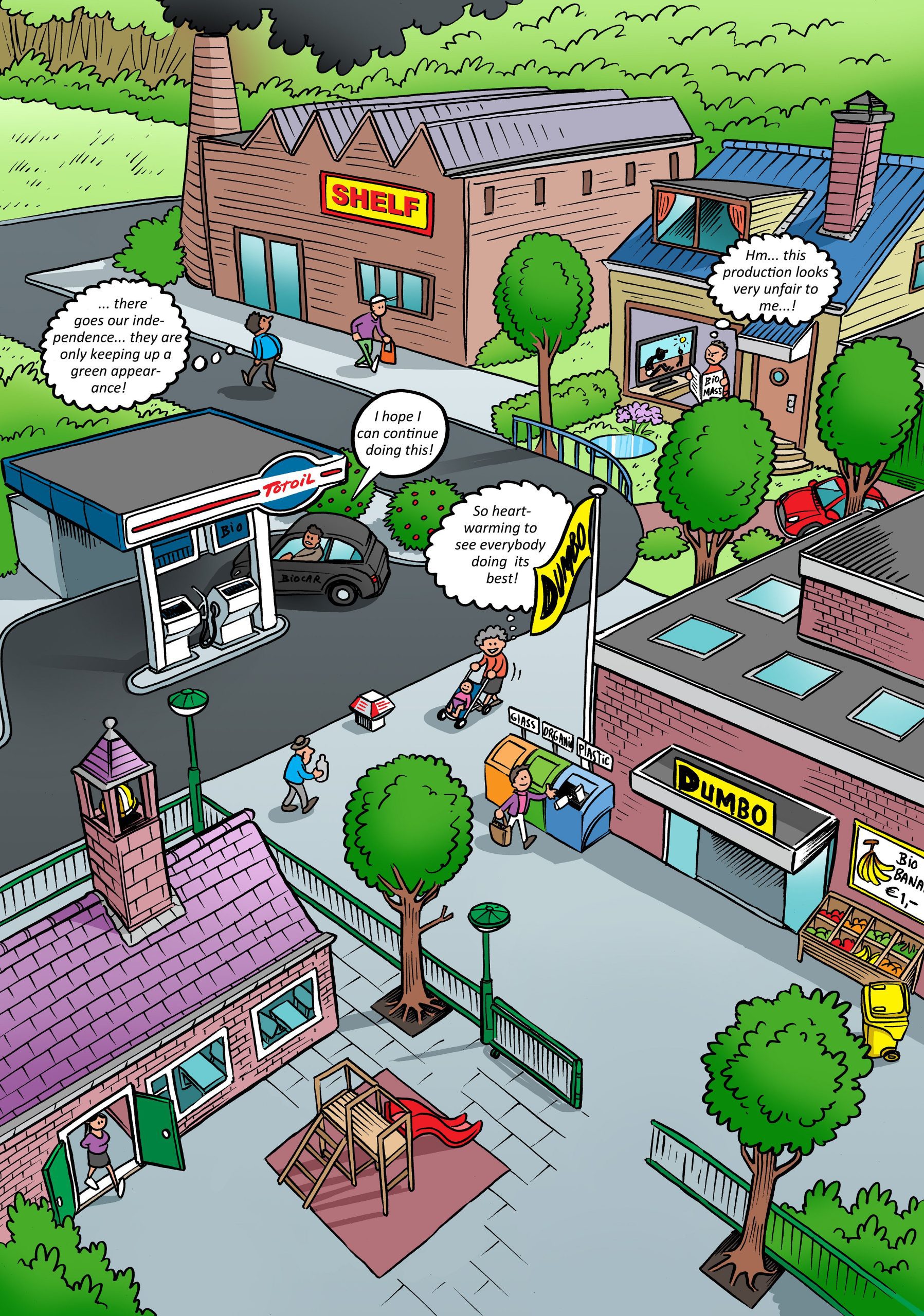What do people do when confronted with information that is unfamiliar and makes little sense? This is how the general public often see emerging science and technology.
Susanne Sleenhoff investigated how the public can be engaged with the field of industrial biotechnology and the role people’s emotions have in this interaction. Her findings can be the starting point for an integrated approach using people’s emotions to engage the public in a transition to a bio-based economy.
Black box
The bio-based economy does not depend on fossil fuels and petrochemicals. It uses biorenewable feedstocks and biological processes for material and energy production and is generally less resource intensive and more environmentally friendly. The public is largely unaware of this transition to a bio-based economy since most developments are happening within industrial production at the level of infrastructures. It is abstract, hardly affecting people’s lives yet. For a complete transition to a bio-based economy people also have to change their behaviour and society has to change consensually. Experts alone need not define the best technology. The public can contribute too if they do not see it as a black box.
Four emotional views and five efficacy beliefs
Sleenhoff explored the public’s emotional views and perceived efficacy beliefs using visual representations of a bio-based economy. She applied Q methodology, a participation technique that measures subjectivity rather than seeing how many people have a certain opinion. Participants evaluated and sorted images revealing aspects that are more and less relevant to them as individuals.
According to the emotional views, Sleenhoff categorised the public as Compassionate Environmentalists, Principled Optimists, Hopeful Motorists and Cynical Environmentalists. Their representations of a bio-based economy showed how they felt they may or may not contribute by consuming less, recycling, using biofuel in their cars, saving the world and making limited personal behavioural changes.
Art and Food
Exploring emotions and sensory stimulation to the unknown, she also tested people’s reactions to atypical art and food. By studying how people responded to a bio-art exhibition at Naturalis Museum in Leiden she uncovered two lines of emotional response, Managed versus Wild, about control and Useful versus Useless about practicality. A bio-based banquet had a menu including mealworms and goose ham designed to make bio-based concepts more tangible to the participants. She learned that this leads to more eventful engagement, which is unpredictable and less controllable.
Accomodate emotions
Sleenhoff concluded that understanding which issues trigger which positive or negative emotions in people contributes to meaningful forms of public engagement. An open, affective approach should accommodate the public’s emotions. “For meaningful engagement we have to connect to people’s emotions,” she said. “In this way we can make the public’s feeling of engagement significant, eventful.”
Susanne Sleenhoff
Thesis: Emotions matter for public engagement in the bio-based economy
Phd Supervisor: Dr. P. Osseweijer (Faculty of Applied Sciences, Biotechnology Department)
Defence date: March 1, 2016



Comments are closed.